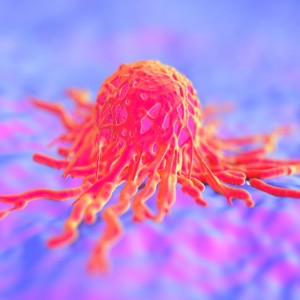 Findings from a recent pre-clinical study published in the journal Molecular Cancer Therapeutics may offer a promising drug strategy to improve survival in patients with aggressive breast cancer who are diagnosed with brain metastasis.
Findings from a recent pre-clinical study published in the journal Molecular Cancer Therapeutics may offer a promising drug strategy to improve survival in patients with aggressive breast cancer who are diagnosed with brain metastasis.
The study conducted by a leading research team at UNC Lineberger Comprehensive Cancer Center was the first to evaluate the efficacy of a combined drug treatment targeting triple negative breast cancer after it has metastasised to the brain, a particularly devastating condition for which there are very few treatment options.
The team conducted a pre-clinical trial in mice with the future goal of testing the strategy in patients. “We are doing this pre-clinical work with the goal of ultimately bringing new treatment strategies to clinical trials,” said Carey Anders, MD, a UNC Lineberger member, co-director of the UNC Cancer Care Brain Metastases Specialty Clinic, an associate professor at the UNC School of Medicine, and the study’s principal investigator. “We anticipate translating this into the clinic through our multi-disciplinary brain metastases clinic here at UNC.”
These specific tumors are hard to treat since they lack one of three key molecular characteristics that are targeted by available treatments. Moreover, recent evidence has shown this subtype of breast cancer has a higher risk of central nervous system spread, protecting malignant cells from targeted treatments as a consequence of the body’s own blood-brain barrier.
Since there are no FDA approved treatments for triple negative breast cancer that has metastasized to the brain, “there is a great need to further explore the biology of breast cancer metastases and develop new therapeutic options for patients,” said Dr. Marni Siegel, a UNC School of Medicine medical and doctoral student who was a co-first author of the paper.
In their study, the team assessed the impact of combining carboplatin – a type of chemotherapy drug effective against tumors carrying a particular gene mutation found in triple-negative breast cancers (BRACA1)– with a new investigational compound called ABT-888, as both drug agents are capable of crossing the blood-brain barrier. Nearly 20% of triple-negative breast cancer tumors have either BRCA1 or BRCA2 genes mutations.
“Historically, drugs like carboplatin are available, they’re active, we know that they can get into the brain, but we wanted to see if we could improve on that with a new, additional drug that works synergistically and that can also cross the blood-brain barrier,” Anders said.
[adrotate group=”3″]
To assess the efficacy of the combination treatment, the authors used two sets of triple negative breast cancer mouse models carrying BRCA1 gene mutations and brain metastases. The results revealed that carboplatin alone or carboplatin combined with ABT-888 increased survival when compared to no treatment. In the first mouse models, the results revealed a median survival rate of 58 days for treatment with carboplatin alone and of 64 days for the combination treatment, and of 36 days for no treatment. In the second mouse models, researchers observed a median survival of 86 days for treatment with carboplatin alone versus a median survival rate of 44 days with no treatment.
When the researchers combined the survival rates of the two mouse models, the results revealed a modest increase in survival, however, not reaching significance. “While we saw promise with the combination therapy in this setting, there is still work to be done to determine the additive benefit of ABT-888 to the carboplatin, and also to discover which population beyond those with the BRCA1 mutation would benefit the most from this new approach,” Anders said.
Importantly, using bioluminescent imaging the team could observe a slower brain tumor growth upon the use of carboplatin either alone or in combination with ABT-888.

